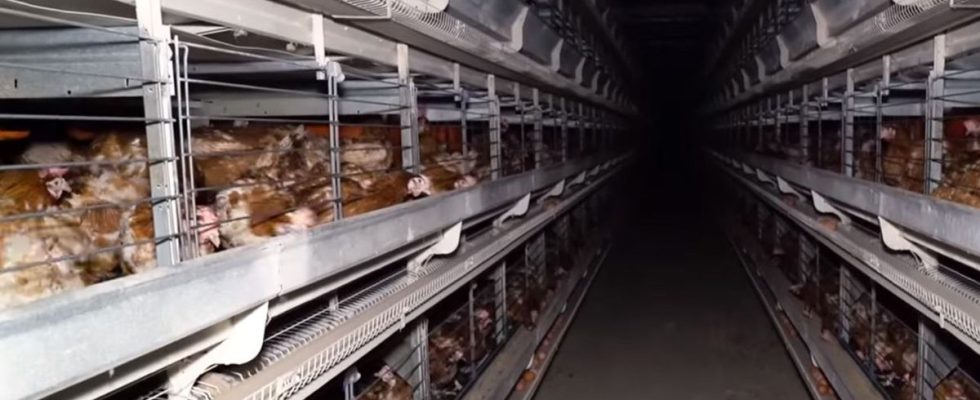Activists from the environmental NGO Greenpeace spread thousands of liters of slurry in front of the Ministry of Agriculture this Monday. A fragrant and spectacular action to demand “a moratorium on factory farms” in the name of animal welfare and the protection of the planet.
Arriving around 9 a.m. in front of the ministry, a livestock truck containing a giant inflatable pig and a mesh truck carrying activists disguised as chickens blocked rue de Varenne, AFP journalists noted. Quickly, activists dressed in white overalls and T-shirts emblazoned with the slogan “Stop factory farms” began to pour slurry, a liquid mixture of animal excrement used as fertilizer, to a soundtrack of screams of pigs.
Eleven activists in police custody
“We dumped two tonnes of slurry to denounce the industrial farming model which, in the face of the environmental and climate crisis, must undergo a profound transformation. We are calling for a moratorium on all new construction or expansion projects for factory farms in France,” said Sandy Olivar Calvo, Agriculture campaigner at Greenpeace France.
The Parisian operation ended around 11 a.m. with the arrest and placement in police custody of “eleven activists” according to the NGO. At the same time, Greenpeace organized rallies “against factory farms” in around twenty cities. Small groups of activists thus gathered, with banners and smoke bombs, in front of the prefectures of Marseille, Lyon, Nantes, Quimper, Dijon, Strasbourg and Bordeaux, according to a press release from the NGO.
Greenpeace classifies farms that require authorization from state services under the term “factory farm” because of their potential environmental impact or for local residents: these farms can accommodate up to 750 sows or more than 40,000 poultry.
“These factory farms represent 3% of livestock breeding which accounts for 60% of the livestock”
Based on data from the Ministry of Ecological Transition on farms classified as ICPE (Installations classified for environmental protection), Greenpeace lists some 3,000 “factory farms” in France (out of 145,000 farms specializing in livestock farming), mainly poultry and pigs. Two thirds are concentrated in the west of the country.
“These factory farms represent 3% of livestock breeding which accounts for 60% of the livestock. In Brittany, this concentration contributes to polluting groundwater and the proliferation of green algae,” said an activist, pointing to barrels of “green algae” marked with a skull at the foot of the truck.
The NGO is also concerned about the future agricultural orientation law, postponed several times and now announced for the beginning of 2024. “This text, which will be the only agricultural law of the five-year term, must be an opportunity to rethink livestock farming. in France,” argued Sandy Olivar Calvo, deploring “a cruel lack of ambition on the part of the government.”
Fewer farms, but larger operations
For their part, the main agricultural organizations (FNSEA farmers’ union, chambers of agriculture, federation of agricultural cooperatives) regularly emphasize that farms will be fewer and larger in the future: there are fewer and fewer farmers and those who stay or settle down seek to work in groups, in particular to be able to take days off.
“When we refuse to increase the size of farms, we increase the difficulty in renewing” the profession, said recently during a press conference the president of the chambers of agriculture, Sébastien Windsor.

